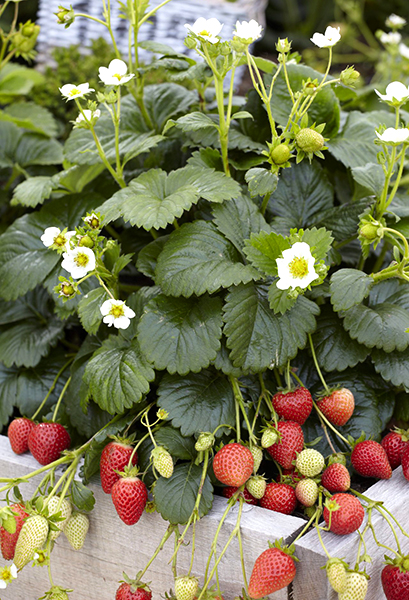Citi-Sci: Gardening for Science!’ experiment focuses on gardening preferences and effects on mental health, seeks participants
Gardeners at any level are invited to join Purdue University Extension, the University of Tennessee, Iowa State University and North Carolina State University for the third year of the citizen-science experiment called “Citi-Sci: Gardening for Science!” from May through September 2024.
Gardeners or citizen-scientists who participate, dubbed “citi-scientists,” will have the opportunity to grow four different types of plants — two strawberry and two marigold plants — some with edible flowers.
Celina Gomez, associate professor of controlled environment agriculture in Purdue’s Department of Horticulture and Landscape Architecture and experiment coordinator, seeks to gain information for their industry stakeholders, who are greenhouse growers. She says, “We want to better understand consumer preferences and challenges with gardening. For example, is there value in selling containers of strawberry or marigold plants with different colors versus one color?”
Data will be collected through surveys. Plants will be provided at no cost to citi-scientists helping to gauge gardener preferences and challenges. Along with the plants and other materials needed for the experiment, participants will have access to monthly educational sessions led by researchers from each institution’s extension department. Session topics will cover pest management, healthy cooking and nutrition, and mental health.
 “This experiment is a chance for the community to be involved in science,” says Michael Fidler, Purdue horticulture and landscape architecture master’s student and graduate research assistant, who leads the experiment with Gomez. “While the data we collect and research we conduct in this field is valuable, we sometimes forget about the human aspect. This is a chance to take part in the scientific process.”
“This experiment is a chance for the community to be involved in science,” says Michael Fidler, Purdue horticulture and landscape architecture master’s student and graduate research assistant, who leads the experiment with Gomez. “While the data we collect and research we conduct in this field is valuable, we sometimes forget about the human aspect. This is a chance to take part in the scientific process.”Gomez adds, “This year, we will also focus more on the psychological aspects of gardening, specifically how participating in a community-oriented project like this can positively impact your mental health.”
Those interested in participating can sign up online by April 26. The experiment is open to all, requiring only a small, sunny place for plants to grow from each citi-scientist. If selected for the research project, participants will receive plant pickup dates, location details and more information with additional resources. Contact Gomez at citi-sci@purdue.edu or 765-494-4443 for any questions.
